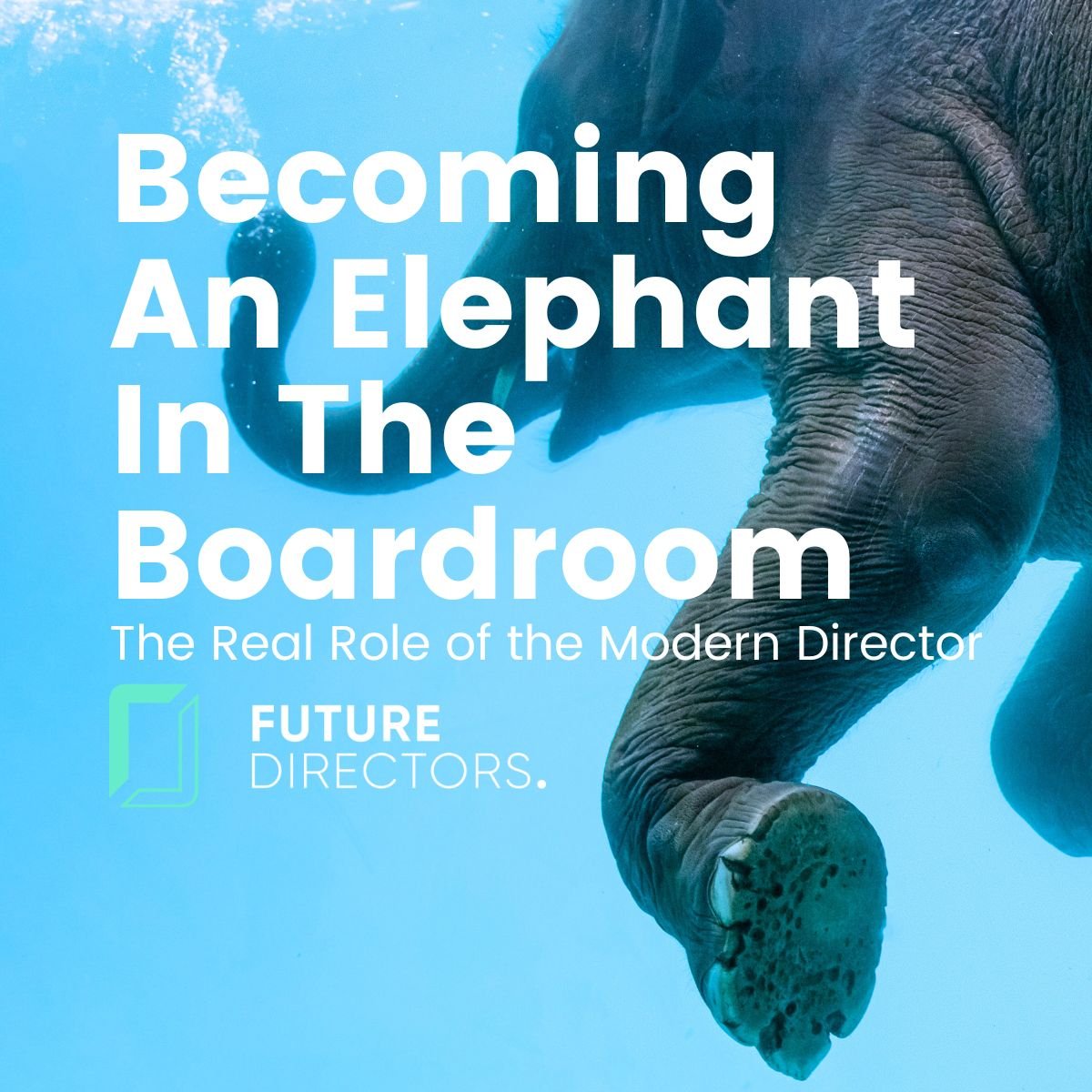
INSIGHTS & ARTICLES

Stakeholders aren’t equal (and that’s the point)
We’ve all seen how messy real decision-making is. You can’t please everyone, and sometimes, what’s good for one group might be pretty awful for another. That’s governance. That’s life. But the problem is when boards don’t talk about trade-offs decisions, they just make them. Unconsciously.
This is why every board needs to move beyond vague stakeholder awareness and into something more structured and intentional: mapping, prioritising, and interrogating stakeholder relationships in context.

Duty of Care. Are you forgetting someone?
When governance types and board directors talk about duty of care, they tend to mean the usual suspects; shareholders, employees, customers, regulators, communities, and sometimes even the environment. Duty of care is a fundamental legal and ethical obligation, requiring directors to act in good faith, make informed decisions, and prioritise the interests of the organisation (ie its stakeholders, or as I like to call them impacted parties). This principle is baked into governance rules and structures worldwide, supposedly to ensure that board members remain diligent, responsible, and accountable for their decisions.

How to solve the growing strain on voluntary boards
Do you sit on one or more voluntary boards? Then this article is for you, and anyone thinking about joining or rejoining this noble part of the unpaid job market.
Yes, it’s a job. A very demanding one, that is only getting more demanding.

Governance in the Era of Uncertainty
As 2025 approaches, the shifts shaping boardrooms worldwide are no longer subtly playing in the background; they're gaining momentum and reshaping how we think about boards, and their role in governance. The choices we make now will echo far beyond our organisations, influencing the broader world we all share.
This month, Future Directors ended our year of building our education and technology platforms with a brand new live event format: The Future Board Forum. This month’s One Thing is my summary of the discussion with our guest contributors (and fellow governance geeks), Erin Essenmacher, Lisa Coletta, and Matt Fullbrook.

The Cost of Misaligned Incentives
For those of us dedicated to creating meaningful change, one of the most persistent issues in corporate (or organisational) governance today is the misalignment of incentives. We know that incentives are powerful drivers of action, guiding priorities and outcomes. But often, they nudge companies in ways that feel at odds with the impact we are here to achieve, especially when short-term performance becomes the sole focus.

Going Beyond the Balance Sheet
Financials are supposed to provide clarity and insight, yet they often leave stakeholders in the dark, unsure of the story behind the numbers. The ‘so what?’
During my recent conversation with Dr. David Bond, who has launched his new Financial Governance for Board Members course on the Future Directors Hub, we discussed how the financials -which are at the heart of so many board decisions- can become a point of confusion and mistrust.

The Kindness Edge
Is your board nice or kind? There is a dangerous temptation to prioritise playing “nice” in the boardroom.
Niceness is often associated with a desire to please, avoid conflict, and maintain surface-level harmony. However, when leaders prioritise niceness, it can become a curse - leading to unresolved issues, superficial discussions, and a lack of accountability.
It’s that very instinct that is holding your board back!

What Makes a Boardroom Superstar?
When asked about the most crucial, overarching character trait of any highly effective board member, my answer is always the same. So, pardon the pun, but this month's One Thing article is all about - you guessed it - one thing!
But, before I share my observation, there have been many pretenders vying for the throne ...

The Yin and Yang of the Boardroom
Much of board education likes to zero in on technical knowledge—keeping up with regulatory updates, sharpening financial skills, risk management, and staying on top of industry trends.
These are crucial, no doubt. But they're only one part of the picture.
The other, often overlooked part, is about human skills—the real heart of what makes a board effective.

Lane Drifters Beware
… while sometimes well intentioned, the impact of someone crossing boundaries, drifting into your lane or purposely taking over someone else’s lane is the One Thing I’d like to talk about this month.
So, let’s start by getting on the same page around what I mean by ’your lane’.
I’m referring to the specific responsibilities, tasks, and areas of accountability assigned to you within your defined and approved role – you know, your space, your area of expertise, your mandate.
And let’s face it - many of us have experienced the unpleasantness of someone jumping into our lane, especially in an open setting like the Boardroom.

Future Directors teams up with The Governance Collective to offer courses on effective board practices
Future Directors, the pioneering holistic board tech platform, in collaboration with corporate governance expert Lisa Coletta from The Governance Collective, is thrilled to launch new online education offerings designed to increase the accessibility and innovation of board director skills development.

Something Good?
Working in a high-performance board means building trust, strong relationships, and allocating time to hard discussions and harder decisions. It’s the recipe for unlocking empathy. Increasing trust, empathy, and connection can be as easy as truly listening to what others have to say. Active listening, in particular, is a basic principle of strong relationships, with the bonus of an Oxytocin boost.

Unpopular Governance Opinions (You Should Lean Into)
Diving into the heart of what makes or breaks the boardroom is not just a pastime for us governance nerds—it's a mission. A few of my fellow future-focused enthusiasts and I went down this rabbit hole about the most unpopular governance opinions, which spiralled into rich insights, debates, and a few controversial takes on the state of corporate governance today.
I thought I would reflect on and summarise the common themes, particularly the most unpopular ones! Anytime a big governance conference rolls around, I also notice that some of these themes are still getting under people’s skins. If it’s not all too triggering for you, here are 10 of the big ones and why I think they’re lurking underneath the politics and dynamics of well or not-so-well-functioning boards.

Harmonising Your Board
What type of board member are you? In this HBR article there are six “types” identified by the authors: Narcissist, Data Chaser, Deferential, Status Hound, Unprepared, and Stakeholder Champion.
I don’t think the six types cover anywhere near the full range of director types, so it got me thinking about my experiences of sitting on boards, styles of leadership, and facilitating outcomes where difficult member dynamics prevail.

The Art of Subtraction & Self-Governance
The seemingly endless need to work harder, smarter, more focussed, less distracted, more complex, and (far) more nuanced in response is well,...frankly, it’s exhausting.
Self-governance has many elements, but the start is self-awareness. What are my drivers? What do I truly know about myself and my "operating system"?

Hindsight, Foresight, Insight: 2023 Year in Review
For the final One Thing of 2023, Future Directors Paul Smith and Aisling Blackmore, alongside our international governance network, reflected on the year that was and the year that’s coming.

Becoming An Elephant In The Boardroom: The Real Role of the Modern Director
As we see big brand companies like Qantas and OpenAI go through what we can safely say from the outside is a bit of a ‘governance crisis’, it has brought up the need to be very clear about what is board leadership and why is it different to other leadership roles.

Building Effective Boards: Blending the ‘Wisdom of Experience’ with the ‘Wisdom of Inexperience’
Explore the transformative potential of blending the 'Wisdom of Experience' with the 'Wisdom of Inexperience' in boardrooms. Paul Smith of Future Directors shares insights on the value younger voices bring to boards. Discover the benefits of diverse perspectives, digital literacy, fresh ideas, and adaptability. Uncover the strategic advantages of inclusive decision-making in today's rapidly changing world. Embrace a future where boards are truly 'fit-for-purpose' and innovative, positively impacting communities and the world.

Peeling Back Board Purpose
In a world of ever-evolving organisational governance, where boards serve as the nerve center of decision-making and strategy, it is surprising how often the simple question of purpose remains unanswered. Boards of directors, entrusted with steering companies through complex waters, frequently grapple with their roles, often searching for their true north.

The Diversity Imperative For Boards
A recent study conducted by Monash University in Australia delved deep into this very issue. It's just the latest study on the topic. They interviewed remarkable women from diverse backgrounds, and what they unearthed is a wake-up call for every boardroom across the world.
Boardrooms are where decisions are made, strategies and policies devised, and yet diversity remains most elusive. This is not just a moral quandary anymore; it's a strategic blunder, a governance gaffe of epic proportions.

